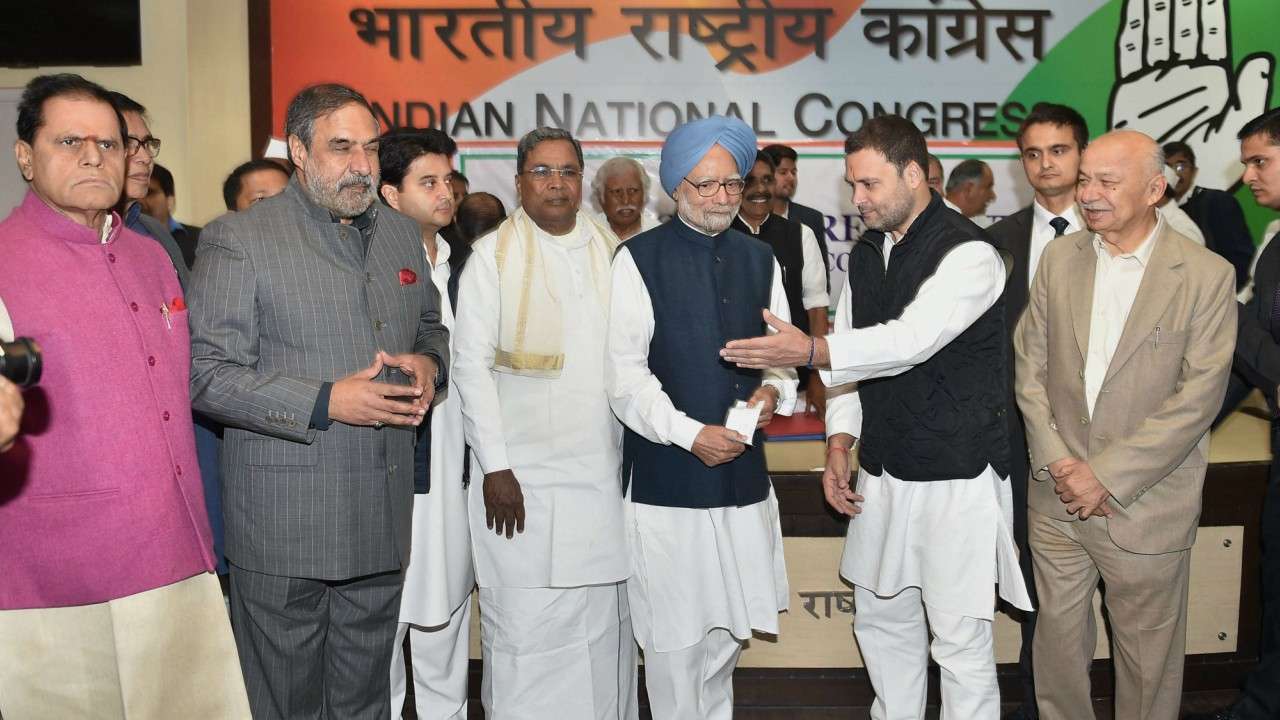
“Inner party democracy” was in full display as the Congress vice-president for five years, Rahul Gandhi, filed his nomination papers for the post of party president on Monday. He was the only candidate to do so as the last minute of the last day for filing nominations passed. Truly democratic, was it not?
Is it that no one else in the Grand Old Party had the desire to lead from the front? If today, speaking purely in the realm of theory, the Nehru-Gandhi family had decided to keep away from the party president's post, I can bet my hat that an EVM would have been required just to count the number of nominations filed for the said post. Why just point at the Congress? “Inner party democracy” is a myth perpetuated by the entire Indian political system. Political parties in the country have been successful in melding “handpicked” and “elected.” Despite all its claims of being a truly democratic party, the BJP is led by one who was elected unopposed. No doubt he proved to be greatly effective, but that doesn’t take away the “selection” aspect from his election.
Look at Trinamool Congress. The organisational election of the party was held in April this year in which Mamata Banerjee was unanimously elected the chairperson. TMC was formed in 1998 and ‘Didi’ has been “elected” as its boss in 2001, 2006 and 2011. The next election will be held after half a decade… feel free to place a wager on the outcome. In Uttar Pradesh, both the SP and the BSP are as far from inner party democracy as any of the parties mentioned above. While the former has been swinging between a jostling father and son, the latter is firmly in the pocket of Mayawati, irrespective of whether she wins or loses elections. In Tamil Nadu, M Karunanidhi is to DMK what Xerox is to photocopying. He was elected unopposed to the post of party president for the eleventh time in a row in January 2015.
From the Badals of Shiromani Akali Dal to the Abdullahs of National Conference to the Raos of Telangana Rashtra Samithi, the story is boringly repetitive, but genuinely worrying. Here’s the crux of the matter: A political system that strives on dynasty, operates like a monarchy and throttles aspirations is ruling over a Constitutional democracy. In India, a Land of Contradictions, this surely takes the proverbial cake.
This is not to cast aspersion on the individuals who are currently at the helm of their respective parties. Most probably they would have come out as winners even if fair and broad-based contests were held within their parties. On Monday, Rahul Gandhi had the opportunity to shake up Indian polity - by entering into a contest. Instead, he chose to play a ‘fixed’ match, entrenching the above narrative.
(The author is Editor-in-Chief of DNA)